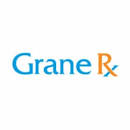
There are four primary points of contact where transmission can occur. Recognizing these vulnerabilities is the first step in mitigation, followed by proactive best practices.
PITTSBURGH (PRWEB)
August 24, 2020
Grane Rx recently released part one of a four-part series on Transmission Risks in Medication Administration. The document covers how to limit exposure to communicable diseases like COVID-19 by identifying where transmission may occur.
There are four primary points of contact where transmission can occur. Recognizing these vulnerabilities is the first step in mitigation, followed by proactive best practices. Here is a breakdown of the risk factors and Grane Rx solution set.
1. Packaging
Punch cards – also referred to as blister or bingo cards – are the highest risk packaging system. Nurses and caregivers have to handle them each and every time they administer medications to a resident or participant, typically multiple times a day. Medication pouch packs, on the other hand, require the least number of touches per day. Grane Rx SimplePack pouches are “touch and toss” that require the least number of touches.
2. Storage
Medication carts that hold the punch cards requires the highest amount of touch. Punch card filing forces nurses into a multi-touch process. The more a nurse has to handle medication packaging within the cart, the more opportunities to inadvertently introduce unwanted pathogens. SimplePacks on the other hand, are a multi-dose pouch packaging system that solve this problem by providing patient medications in pre-packaged rolls assembled via “no-touch” automation in the pharmacy. The packaged rolls are then stored in individual patient bins within the medication cart.
3. Administration
Physical distancing is one of the most effective ways to prevent disease transmission. While we can’t eliminate contact in senior care altogether, nor would we advise it due to the health benefits of human connections, we can limit contact for safety purposes. Reducing the frequency of medication administrations is an effective way to limit the spread of disease.
4. Medication Regimen
De-prescribing is the active process of optimizing a person’s medication list to remove medications that are no longer beneficial or could be causing harm. De-prescribing is part of good prescribing – backing off when doses are too high or stopping medications that are no longer needed.
About Grane Rx
Grane Rx is a high-touch senior care pharmacy and medication management provider. The organization’s end-to-end services include clinical consulting, staff training, on-going staff support, pharmacy transition facilitation, precision medication prescribing and state-of-the-art pharmacy automation. All solutions are designed to streamline senior care operations, optimize care and manage costs. Grane Rx works closely with our partners to build a collaborative relationship and ensure a smooth pharmacy transition.
About Grane Rx’s Meds2Home Program
Grane Rx has been leading PACE pharmacy solutions since 2006. We help PACE personnel streamline their operations, maximize their savings, and free-up staff time to focus on participant care. Through at home medication adherence systems, our Meds2Home program is revolutionizing senior care pharmacy by enabling participants to age safely and comfortably from home. Many of the PACE programs we serve are members of the National PACE Association.
Share article on social media or email:

